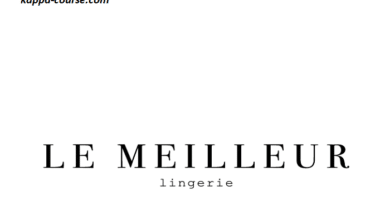Plus de: Insights into a Common French Phrase

Introduction
French, with its eloquent syntax and rich vocabulary, offers many phrases that are pivotal for fluent communication. One such phrase is ‘plus de’, commonly used to denote quantity or comparison. This blog post will delve into the grammatical aspects, practical uses, and the cultural significance of ‘plus de’ in the French language.
Plus de
‘Plus de’ translates to ‘more’ or ‘no more’ in English, depending on the context. It is used to express a greater quantity or degree of something. For example, “plus de détails” means “more details.” The versatility of ‘plus de’ makes it an essential phrase to master for anyone learning French.
Grammatical Rules for ‘Plus de’
The use of ‘plus de‘ requires an understanding of its grammatical placement. Generally, ‘plus de’ precedes a noun or an adjective. For instance, “plus de livres” means “more books.” Grasping the grammatical nuances is crucial for using ‘plus de’ correctly in sentences.
‘Plus de’ in Quantitative Expressions
When talking about quantities, ‘plus de’ is extremely common. For example, “J’ai besoin de plus de temps” translates to “I need more time.” This expression is fundamental in French to discuss anything related to a greater amount or number.
The Negative Connotation of ‘Plus de’
‘Plus de’ can also imply the absence of something when used in a negative sentence. For example, “Je n’ai plus de patience” means “I have no more patience.” Understanding this dual usage is important for learners to avoid confusion.
‘Plus de’ in Everyday French
In daily conversations, ‘plus de’ pops up frequently, helping speakers articulate needs, preferences, and observations. Sentences like “Il veut plus de chocolat” (He wants more chocolate) are commonplace, reflecting the phrase’s practicality in everyday language.
Common Mistakes with ‘Plus de’
Learners often struggle with when to use ‘plus de’ versus ‘plus’. A common error is using ‘plus de’ where ‘plus’ alone suffices. For example, saying “plus de meilleur” instead of “plus meilleur” (which is incorrect in itself and should be “meilleur” or “plus bon”) can lead to inaccuracies in speech.
Literary Usage of ‘Plus de’
French literature provides rich examples of ‘plus de’. Writers like Marcel Proust have used ‘plus de’ to create rhythm and emphasize in their prose, enhancing both the narrative and the linguistic style. Understanding its literary applications can deepen one’s appreciation of French literature.
‘Plus de’ in Professional Contexts
In professional settings, ‘plus de’ is crucial for effective communication. Whether discussing deadlines, resources, or capacities, using ‘plus de’ accurately ensures clear and professional conveyance of information, such as in “Nous avons besoin de plus de temps pour compléter ce projet.”
Teaching ‘Plus de’ in Language Classes
Language instructors emphasize ‘plus de’ in curriculum due to its frequency and utility. Teaching strategies often involve comparative exercises, multimedia resources, and real-life interaction scenarios to embed the correct use of ‘plus de’ in diverse contexts.
‘Plus de’ in Comparative Constructs
Comparative constructs often employ ‘plus de’ to highlight differences or preferences, as in “Elle a plus de courage que lui” (She has more courage than him). These constructs are integral to mastering conversational French.
Practicing ‘Plus de’ Through Exercises
To effectively learn ‘plus de’, students may engage in exercises that involve filling in blanks, rewriting sentences, or creating new ones based on visual aids. These activities help reinforce the correct usage of ‘plus de’ in various grammatical contexts.
Conclusion
‘Plus de’ is more than just a phrase; it’s a linguistic tool that enriches communication by allowing speakers to express quantities, degrees, and comparisons effectively. From everyday chats to literary texts, ‘plus de’ plays a crucial role in French language and culture. Mastery of ‘plus de’ can significantly enhance both the understanding and the use of French.
FAQs
1. What does ‘plus de’ mean in French? ‘Plus de’ generally means ‘more’ or ‘no more,’ depending on the context, and is used to express an increased quantity or degree.
2. How do you use ‘plus de’ correctly? ‘Plus de’ is used before a noun or an adjective to indicate a greater amount or degree, like “plus de liberté” (more freedom).
3. Can ‘plus de’ have a negative meaning? Yes, in negative constructions, ‘plus de’ implies the absence of something, as in “je n’ai plus de café” (I have no more coffee).
4. What are common mistakes when using ‘plus de’? A frequent mistake is confusing ‘plus de’ with ‘plus’ when expressing comparatives or mistakenly altering the structure that modifies.
5. How can I practice ‘plus de’? Practice using ‘plus de’ through targeted grammar exercises, engaging in conversations that require comparisons or expressions of quantity, and reading French texts that use this structure.




